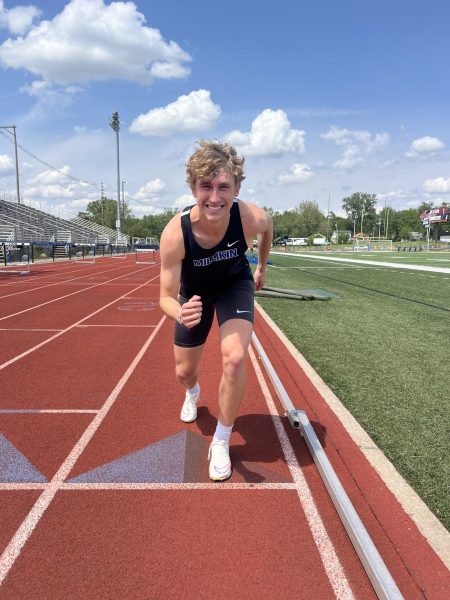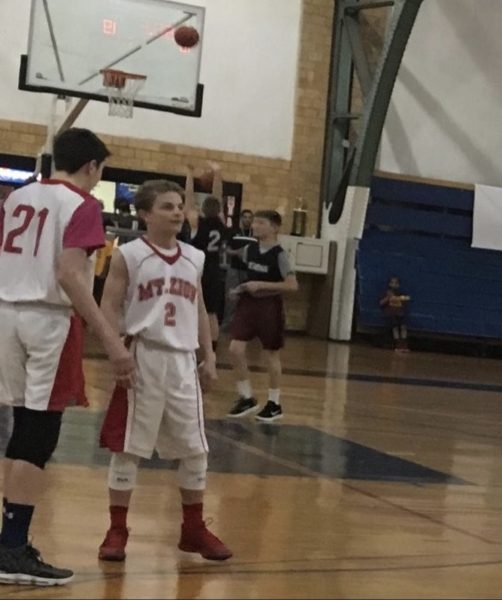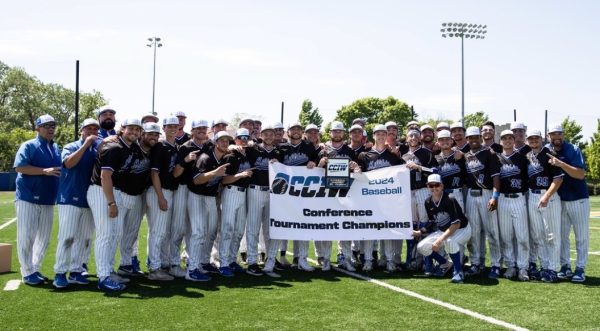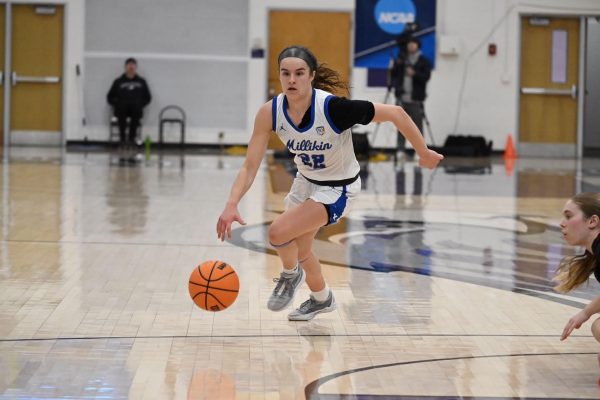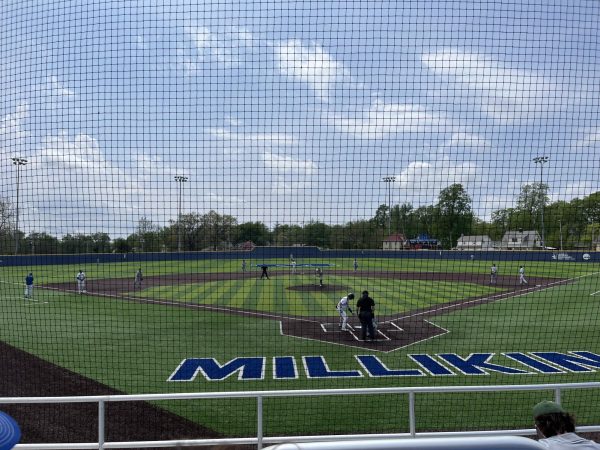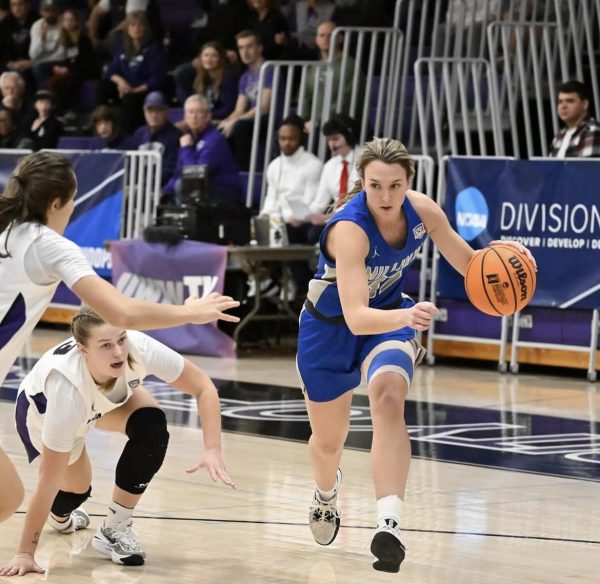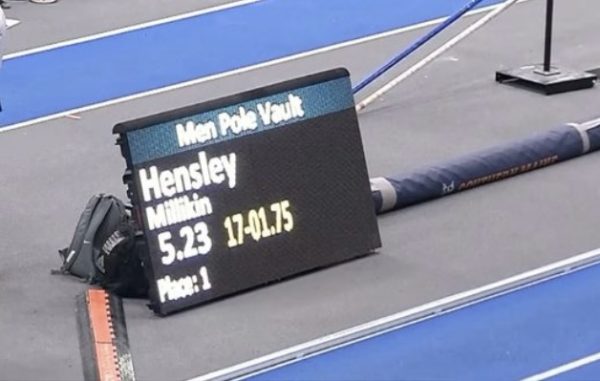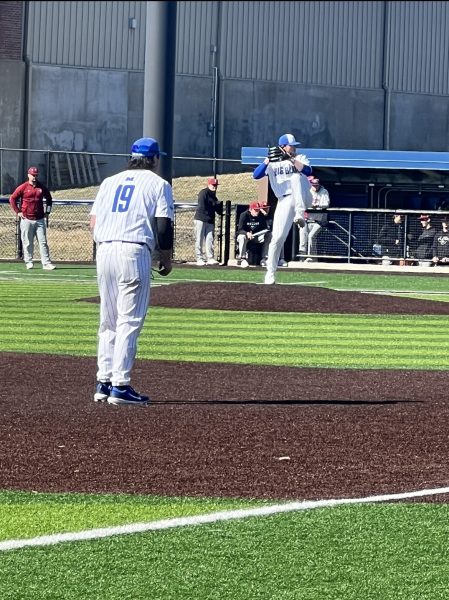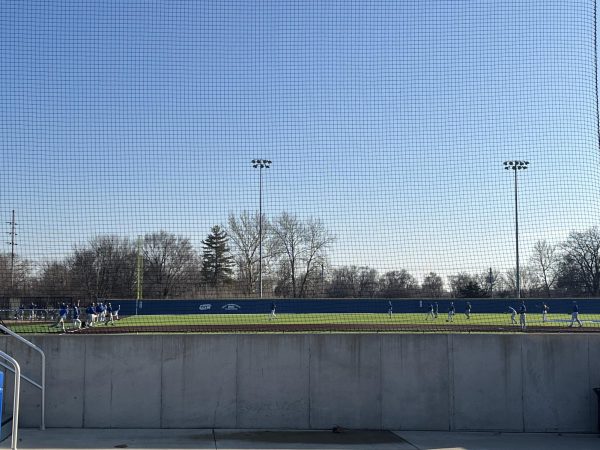Why Aren’t Sports Ahead of the Social Justice Game Anymore?
Sports and politics go hand and hand whether people want to believe it or not. Over the last couple of years, “shut up and dribble,” “I can’t breathe,” and the most famous, Colin Kaepernick kneeling during the national anthem have joined social injustice and sports together. Athletes used their platforms, knowing that promoting movements such as these would make it big and start conversations.
The sports world has made it easier for athletes and others related to the field to bring up what they believe to be as injustices, most of the time referring to race. When people criticize athletes, coaches, team owners, etc. for taking a certain stance on a controversial topic, they are forgetting that social justice moving in a positive direction began in sports.
Jackie Robinson made his debut for the Brooklyn Dodgers on April 15, 1947, making Robinson the first African American to play in Major League Baseball. What people often tend to forget or overlook is that Robinson played before the Civil Rights Movement began. Robinson started playing in the majors almost 20 years before the Civil Rights Movement technically ended. Kenny Washington, the first black NFL player signed with the Los Angeles Rams in 1946, ending the 12-year ban on black athletes in the NFL. A few years later in 1950, Earl Lloyd was the first black player to play in a NBA game.
All these major firsts happened before the Civil Rights Movement had started. So, why have sports been so absent in social justice regarding the LGBTQ+ community?
In June of 2015, marriage equality was finally legalized. This was one big win for the LGBTQ+ community. This step in the right direction was great, but again, there is still tons of work to be done.
Before and after the legalization of marriage equality, openly gay male athletes seem to be non-existent. Now, there is no way to know how many athletes are actually a part of the LGBTQ+ community as some might be in the closet for their own reasons. The closet is a term many people are familiar with, mostly associated with “coming out of the closet” meaning someone comes out as gay, bisexual, trans, etc. Although not a literal place, the closet can provide a safe place for those who fear negative responses at an individual’s sexuality.
The closet is a concept I hope disappears in my life time. The concept that everyone is assumed to be straight, and if you are not, you must tell people is ridiculous. Straight people do not have to announce and defend their sexuality, so why should others?
Unfortunately, with the amount of hate people in the community face, I do not blame them for staying in the closet. I mean who can blame these athletes for never coming out or letting years pass before people know they are not straight when their own teammates and fans use offensive language towards the LGBTQ+ community?
It seems like there is a repetitive pattern over the last few years that athletes and their old and offensive tweets are brought to light. One of the most recent athletes following this pattern is Josh Hader, a pitcher for the Milwaukee Brewers. When Hader was 17, he tweeted racist, misogynistic, and homophobic words and views.
Although Hader has claimed he is not the same person as his younger self, and his beliefs and views have changed, it still does not change the fact that one, he believed hateful things at one point in time and two, he thought it was okay to put these hateful words on the internet for others to see.
Hader is one of many athletes to do something like this. The cycle goes that the individual says offensive things, someone digs back to find them, bringing them to the attention of millions, the athlete apologizes, and then fans forgive and try to forget. Even though Hader claims he does not have the same beliefs, we will never know if this is necessarily true, but fans were quick to forgive him and even gave him a standing ovation soon after the occurrence. What does this say to other athletes, fans, or anyone a part of the LGBTQ+ community?
It raises the thought that no one cares about the hate towards the community. Fans were willing to praise Hader because “he was young” but in my book that should not matter. Yes, you can grow from what you use to believe or think, but spewing hate is never a good.
Hate speech leads to hate crimes, and the LGBTQ+ community has seen more than enough of this. When we denounce this kind of hate, it not only encourages people to do something violent, but it also makes people scared to be who they really are. And when countless athletes have proclaimed their hate towards the community, whether on twitter or out loud, it is not surprising that gay athletes do not feel comfortable among their peers.
I do not believe verbal hate is the only thing keeping those in the community from playing sports, but also the toxic stereotypes that follow sports and sexuality.
As the stereotype goes, when males, especially male athletes are gay, it is, for some reason, they are viewed as being un-masculine. On the other hand, women athletes, especially those who play basketball and/or softball are assumed to be lesbians. Women athletes, particularly in those two sports, are seen as masculine, and it is even more encouraged the masculinity of these women if they are gay.
So basically, if you are a gay male athlete, you are un-masculine and more feminine. But gay women athletes are more masculine. In what world does sexual orientation determine how masculine or feminine you are?
I hope over the next few years, major athletes such as Lebron James, Odell Beckham, and Clayton Kershaw will take a stand and support the community. Mainstream athletes need to say it is okay to come out and be who you are. They stand up and tell fans and others about how high muder and suicide rates are of people in the LGBTQ+ community. They need to say they are not going to use offensive language towards to community when upset, with their friends, or in any instance. They need to say teammates would be accepted and there is no room for hate in the locker room.
Let’s face it. No one cares what I think. No one is going to change their mind because a woman from a small town, attending a small school, in hopes to make a difference in the world says it is wrong. Secondly, I am not the one with history of hate towards that LGBTQ+ community, it is the sports world with the history. It is time for sports to be caught up with social justice again.

